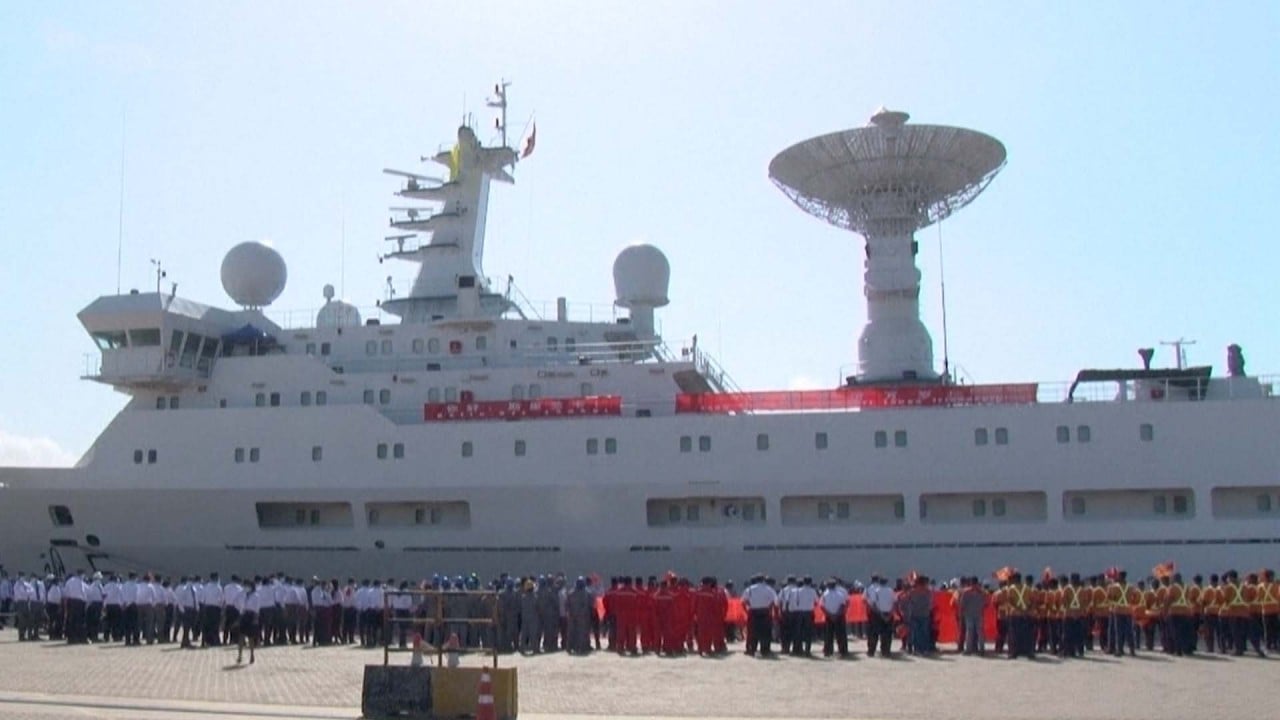On sidelines of UN General Assembly, Sri Lankan president calls Aukus ‘a mistake’ and rejects fears over China
- President Ranil Wickremesinghe also derided the term ‘Indo-Pacific’ as an artificial framework with an inconsistent definition
- He also countered recent claims by New Delhi that Beijing was sending ships to Sri Lanka to spy on India

“I think it’s a strategic misstep. I think they made a mistake,” Wickremesinghe added, describing the alliance as unnecessary. “I don’t think it was needed.”
Created in September 2021, Aukus is described by the governments of its member states as a security partnership involving information and technology sharing on nuclear-powered submarines, artificial intelligence, quantum technologies and additional undersea capabilities.
“Nobody knows what’s Indo-Pacific,” he said. “For some people, the Indo-Pacific ends on the western boundary of India, others take it into Africa, and some end up with Western Pacific, others go to South Pacific.”
The Sri Lankan leader said the Sino-US rivalry originated in the Western Pacific but had now spread to both the Indian Ocean and the South Pacific.
